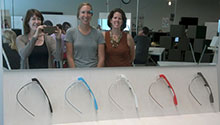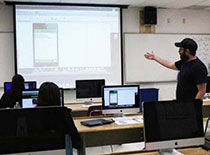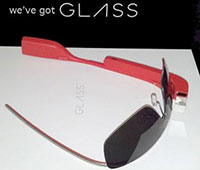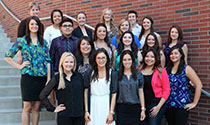
J&PR Wired
Paid in Experience
By Eva Cuarenta
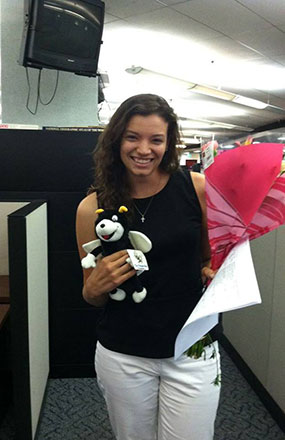
Money doesn't grow on trees.
In order to have money, you must work for it - that's a lesson most of us learn at a very young age.
Then, during college, professors push you to seek internship opportunities, even while acknowledging that you're likely to take a bank account hit while you're earning that resume hit.
But what happens if this opportunity, an unpaid or under-paying internship, is something a J&PR major just can't afford?
Chico State J&PR offers a stipend program to current journalism students that aim to help with this problem.
The stipend program is funded from alumni donations in order to financially assist students doing unpaid summer internships. The program began when alumnus David Hufford contributed $5,000 to the program, and his employer, Microsoft, matched his donation. That $10,000 in seed money has been increased through other alumni donations and has facilitated two internship stipends for the past two summers.
Anthony Siino and Quinn Western applied for and received J&PR stipends in summer 2013. The stipends placed them at The Sacramento Bee and The Fresno Bee, respectively, and were matched by parent company McClatchy Co.
Without the department's financial commitment to the students, the news organizations would not have been able to offer the two additional internships.
"Editors from both 'Bees' reached out to the program after learning from J&PR faculty about the stipend program," Chair Susan Wiesinger said. "It was a cooperative effort that built on our relationships with McClatchy."
To receive stipend funding, students must find their own internships, and then apply for both the stipend and journalism internship credit.
Stipends are not just for unpaid internships; they can also be used for things like transportation to and from low-paying internships in the Bay Area, Wiesinger said. Each request is considered on the basis of student need, the length of the internship and the nature of work to be accomplished.
The stipend program helped Siino, who graduated in spring 2013, get the boost he needed on his way out of the journalism program. After his summer internship ended, he was asked to extend his work at the Sac Bee for about a month. He then was offered an on-call position as a copy editor, page designer, wire editor and "anything else they needed" him to do.
"My internship at The Sacramento Bee was a strange beast of sorts," Siino said. "I was initially brought on to work with the copy editors as they proofread every bit of copy in the paper. I was then moved to work with page designers in order to become a designer myself."
The latter is a point of pride for Siino: "From what I hear, this is the first time at the paper that an intern worked with design at all, let alone as a copy editor and designer," he said.
Quinn Western, who is on track to graduate in spring 2015, gained a wealth of news experience during her internship at The Fresno Bee.
"Not only did this internship confirm that journalism is a career path I want to pursue, but I also learned so much every day in that newsroom," Western said. "I covered everything from double-murder trials to weather stories."
Western brought her Bee experience back to The Orion, where she served as managing editor in fall 2013.
"I'm grateful for the opportunities this stipend provided for me and the doors it can open for other students," she said.
Alumni and employers are invited to support the J&PR stipend program through monetary donations or internship suggestions.
